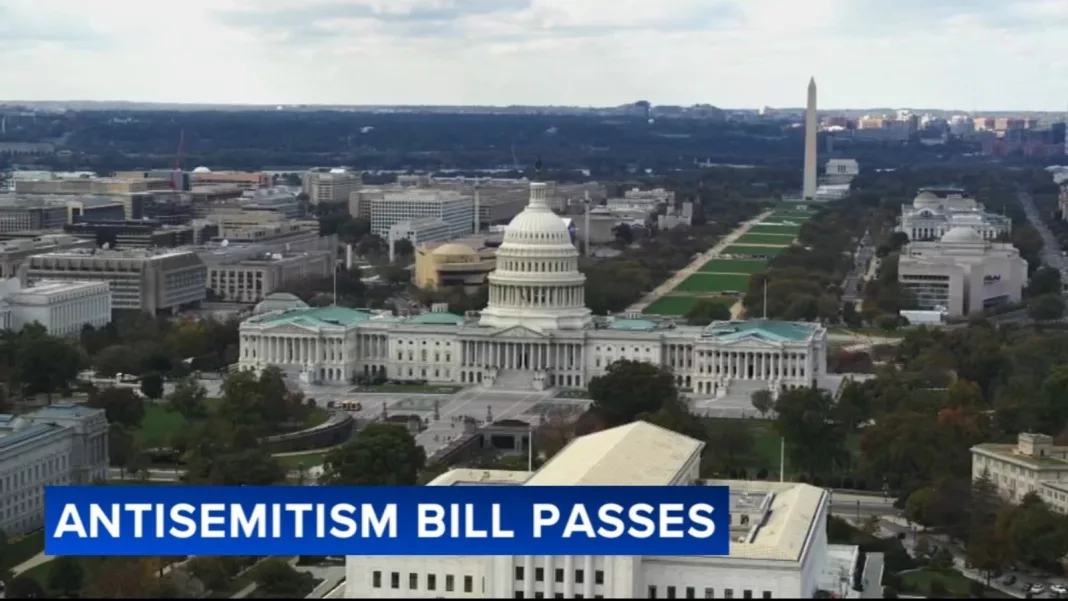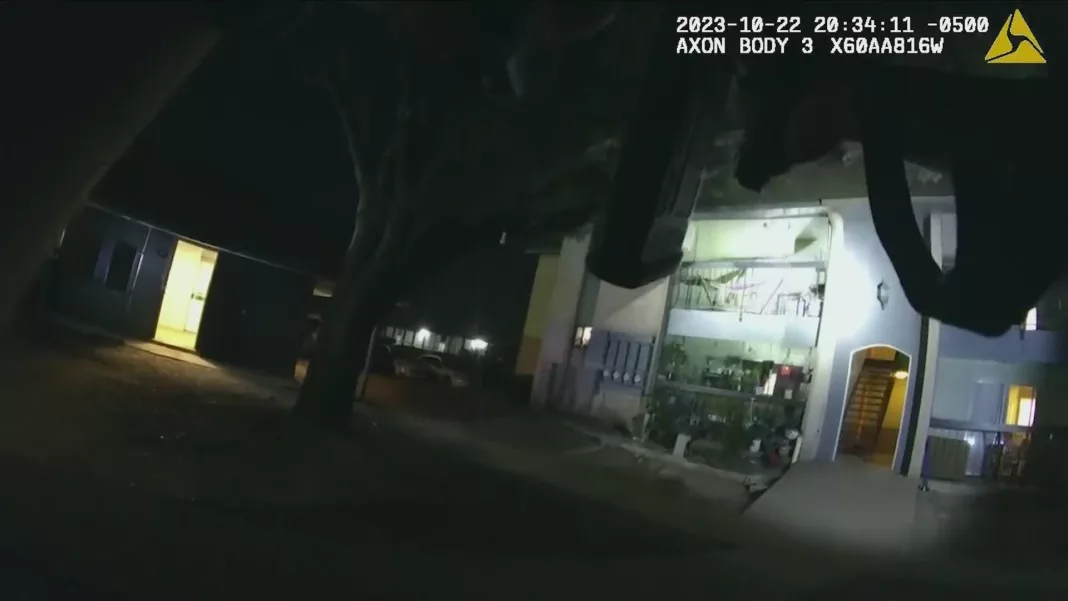House Speaker Johnson Highlights Campus Protests as House Passes Antisemitism Bill
The House of Representatives has voted to pass the Antisemitism Awareness Act, a bipartisan bill aimed at combating antisemitism on college campuses. The passage of this bill comes at a time when concerns over antisemitism are heightened due to the ongoing conflict between Israel and Hamas, as well as the emergence of pro-Palestinian protests on college campuses across the country.
Supporters of the legislation argue that it is necessary to address the rising incidents of antisemitism on college campuses. The bill would require the Department of Education to use the definition of antisemitism put forward by the International Holocaust Remembrance Alliance when enforcing federal anti-discrimination laws. However, opponents of the bill claim that the definition is too broad and could potentially infringe on free speech.
The House vote saw a majority of 320 to 91 in favor of the bill, with 70 Democrats and 21 Republicans voting against it. Notably, the opposition from Republicans largely came from the right-wing faction of the party. The bill will now move on to be considered by the Senate.
New York Republican Representative Mike Lawler, who introduced the legislation, emphasized the need to combat antisemitic hate within the country. He expressed gratitude for the bipartisan support and endorsements from various Jewish organizations.
However, the American Civil Liberties Union (ACLU) has called on lawmakers to oppose the bill, stating that it could potentially chill free speech on college campuses. The ACLU argues that existing federal laws already prohibit antisemitic discrimination and harassment, and that this bill is unnecessary and could wrongly equate criticism of the Israeli government with antisemitism.
During floor debate on the bill, Democratic Representative Jerry Nadler of New York voiced his opposition, stating that while there is no excuse for bigotry or violence, criticism of Israel alone should not be considered unlawful discrimination. He believes that the bill’s definition of antisemitism is too broad and could lead to unintended consequences.
Despite opposition, Lawler remains determined to push the bill forward. He announced that Republican Senator Tim Scott will introduce a companion bill in the Senate and called on Senate Majority Leader Chuck Schumer to take action.
The passage of this bill comes as House Speaker Mike Johnson puts a spotlight on campus protests. Johnson recently visited Columbia University, where he met with Jewish students and called for the university’s president to resign. He also announced a House-wide effort to crack down on antisemitism on college campuses, with House Republicans vowing to increase oversight efforts on universities.
Republican Representative Virginia Foxx, the chairwoman of the House Education Committee, has given notice to Yale, UCLA, and Michigan to appear before the committee for a hearing on their handling of recent outrages. The House will be looking into federal funding for universities, the foreign student visa program, and tax benefits for universities.
The complexity of the Israeli-Palestinian conflict adds another layer of difficulty to the campus turmoil story. Students participating in protests come from diverse backgrounds and hold a range of political and social views. Many are motivated by reports of a humanitarian crisis in Gaza and view the actions of the Israeli military as a continuation of oppression against Palestinians. On the other hand, many Jews feel that Israel needs support as a refuge for Jews and oppose any criticism of Israel as antisemitism. The situation is further complicated by incidents of Islamophobia on campus and violence against Jewish students.
As this bill moves forward, it remains to be seen how it will impact campus protests and the larger conversation surrounding antisemitism and free speech. With Senate consideration looming, the debate is likely to continue, and lawmakers will need to carefully navigate these complex issues in order to find a balanced solution.


